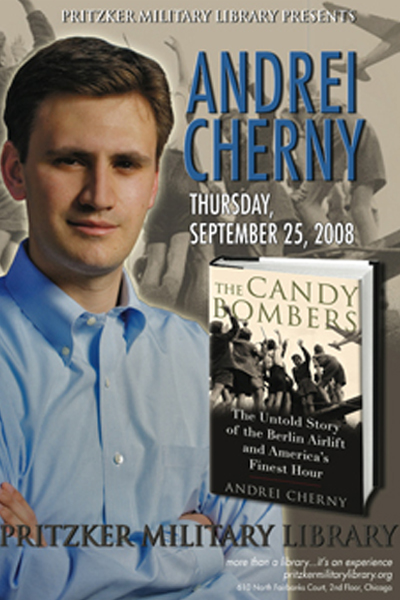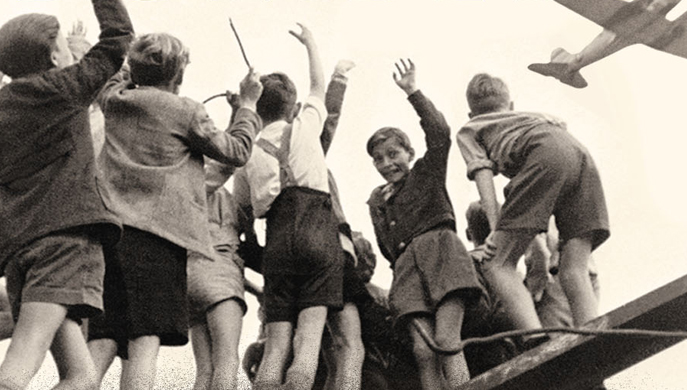
Record date:
Andrei Cherny: The Candy Bombers: The Untold Story of the Berlin Airlift & America's Finest Hour
After three years of shared control over post-war Germany, tensions came to a head; the Soviet Union cut off all land and water access to Berlin, intending to starve the city until the United States left. To break the blockade, American bombers took flight with a payload more powerful than any the Soviets had anticipated: chewing gum and chocolate bars.
In 1948, families throughout Germany were still living amid rubble and ruined buildings, and many were on the verge of starvation. West Berlin had become a hotbed of pro-democratic sentiment, but the city had no hope of outlasting the blockade. American forces in Germany were vastly outnumbered by the Soviets, and armed escalation could have led to war. Instead, at tremendous difficulty and expense, the U.S. Air Force began to airlift food, water, and fuel to Berlin. Andrei Cherny describes it as "the moment America came to fully accept the mantle of leader of the free world." Mocked at first by the Soviets and derided by Republicans at home ahead of that fall's presidential elections, the Air Force nevertheless managed to save more than two million people and bring lasting democracy to a country that had, only three years earlier, fought under the Nazi flag.
The Candy Bombers draws heavily from the personal papers and experiences of Hal Halvorsen, a lovesick young pilot in the airlift. After an encounter with a group of German children, Halvorsen began wrapping his weekly rations of candy in small parachutes and dropping them on flights over Berlin. Soon, other pilots began to follow suit, and the movement took on a life of its own; more than three tons of candy were donated by American schoolchildren, and the candy drops came to symbolize the airlift as a whole - an act of genuine concern, kindness, and shared humanity for which, in Cherny's estimation, "Never before - or since - would America be so admired around the world and stand so solidly on the side of light."
Andrei Cherny is co-editor of the idea journal, Democracy. He is also the author of The Next Deal and has written on history, politics, and culture for the New York Times, the Washington Post and the Los Angeles Times. Cherny is a former White House speechwriter and an officer in the Navy Reserve.










